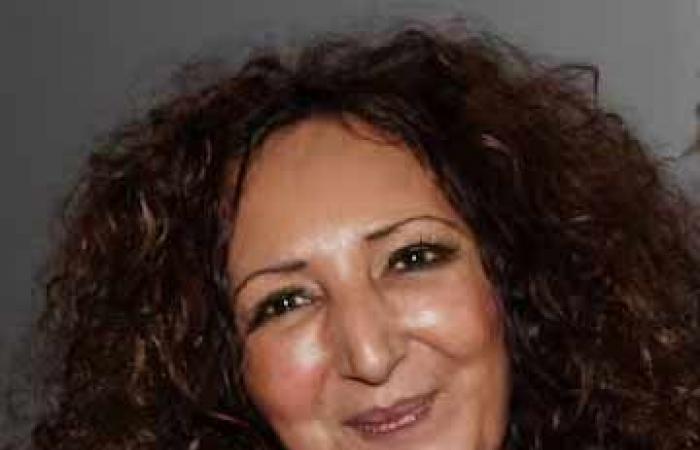The privilege of the writer is to take us where he wants and where we would not have gone without him. And like the reader with research tools, he goes from adventure to adventure to be able to explore the folds and folds of the text in order to extract meaning and enjoy his share of the pleasure it offers him.
Our writers are there to open up to us, our readers, some reading avenues and even tools, a foretaste of these enjoyments bringing satisfaction, even satiety, being their accomplices.
Libé: How were you able and able to adopt writing, this indomitable and capricious medium, and adapt it to your requirements?
Bouthaina Azami: I have never seen writing as an indomitable horse to be tamed, but as an accomplice. More than that, a sort of saving double who speaks for me, echoes the most imperceptible interior movements, voices of the most inextricable, most stifled, most suffocating silences. And we begin to breathe again when we thought we were suffocating, diving deep within ourselves to reveal these rustling memories and emotions that only writing has the power to reveal. No, not even to tell, to say. But to make you feel. In their tremors, their palpitations, their rising or missing breath, their musicality, the thrill of their journey through the flesh, through the blood. It is a kind of body-to-body where writing becomes a kind of work of excavation and deciphering of the buried, the intangible, to which it listens in a process of reading the ‘intangible before the release of the verb. And that’s where the magic happens: in the perfect harmony of the intangible and the words arranged to embody it and make it perceptible.
What was your first text, short story, novel or poem, that you published, that you submitted to the reader?
My first published novel is “La Mémoire des temps”, published by L’Harmattan in 1998. Strangely, from the first sentences, I felt that I would go further, this time, than the eternal loose sheets that I left behind. behind me since childhood. In fact, I wrote this novel without thinking for a moment about possible publication. Once completed, it sat on my desk for several years, and it was friends who encouraged me to submit it to a publishing house. In this novel, I immersed myself in the character of a little girl sold by her parents to a bourgeois family. Every night, for more than a year, I put myself in the shoes of this child. The book opens with a cry: that of the little girl torn from her mother’s arms. Then the silence falls like a cleaver. From there, the writing will work to probe this striking silence which seized the child at a violent moment of annihilating rupture where she becomes a spectator of a world which keeps her apart. , who does not welcome him.
The French language has been able to submit to your will, to your wishes, to your demands. Who are the writers who have influenced your way of looking at facts and writing them? Is it the same for you?
From a very young age, I was passionate about literature. As I attended French school, I was immersed in the great French literary and poetic works. The theater, the great classic novel of the 19th century, the great poets, among whom Baudelaire still holds a special place today. Using language to extract, through the poetic act, beauty (flowers) from “evil” is certainly the power and meaning of writing. Then there was a turning point, at the beginning of adolescence, when I discovered, through French-speaking spaces, a whole literature to which we were not aware at school. It was truly an event. I discovered another French language, deterritorialized, sometimes mishandled to, for example, in Mohamed Khaïr-Eddine, depict the rout of identity in the rout of the language (as in Agadir, where “I” becomes in turn ” you” and “he”, as if “I” were nothing more than a radical experience of otherness). Likewise, Césaire, using the metaphor of the volcano, screams in the face of the world what the world does not name, what the history books are silent and consciences ignore, the “misfortunes of those who have not no mouth” and of which a decree will not have been enough to abolish the suffering which, centuries later, persists in a contemporaneity whose “the womb is still fertile from which the filthy beast came”. He thus uses the metaphor of the volcano to play out a transfiguration, to shake the universe and reconfigure it to give back to man an identity, a dignity beyond denial, in the very hollow of the wound, in the roar of thunder. of this word “Negro” which he will invest with a “value of force, a force value”.
The examples are numerous. All this to say that the writers from whom I like to draw inspiration simulate the space of violence, inscribed in the text, for another truth which disturbs, mistreats the world as it is given to us to see; the space of a transfiguration, too, where the dismantling of language, the shattering of space and the rout of time participate in a “work of liberation”, as Edouard Glissant would say.
For Proust, the written life is more intense than the lived life. What do you think?
Strangely, they overlap one another. I wrote, like several other of my novels, The Memory of Times during the night. But, during the day, the characters continued to follow me, to live within me. In a way, the book continued to write itself. Moreover, yes, there is certainly an intensity specific to the written life due, perhaps, to the fact that we live several lives in a relatively short period of time and that, moreover, as Deleuze says, literature is “a sort of double of the world capable of collecting its violence and excess”.
“Writing is the double pleasure of telling and telling oneself a story, and it is also the pleasure of writing, which is inexplicable,” said Françoise Sagan in an interview with the Literary Magazine in June 1969.
When I start a book, I start with an emotion that I spin before letting it carry me into a story that I did not premeditate. I never really know where writing will take me when I write the first words. There is, of course, the pleasure of writing which is felt from the first sentence, when it manages to render, in an almost miraculous way, the movements, the breath, the quivers, the bursts of this first emotion, inaugural. And there is the equally magical pleasure of the romantic adventure, when we discover the book while it is written as if outside of ourselves, when it takes us where we did not consciously think we were going.
The critic and writer Milan Kundera says that the novel is the place of ambiguity, the place where things are never decided definitively, the place of the absence of a Manichean morality. Could this apply to your novels?
I would be tempted to answer in the affirmative, because there has never been room, in fact, for a Manichean morality in my novels which can all be described as so many initiatory journeys. We follow characters whose feelings, sensations, pains we share, and whose evolution we follow over time. Literature and poetry are sensitive spaces which exacerbate, in a dizzying way, the human in us, in what is most noble. Sensitivity unites, welcomes. Morality divides, distances, presupposes judgment.
In your novel “The Cenacle of Solitudes”, how would you explain this silence of the characters, this aphasia from which you too felt taken, is a kind of cry, as you said in some of your interviews?
The Cenacle of Solitudes is marked by the silence that falls on beings in the most unbearable moments. Violence strikes with silence, and it is this suffocating, tormented, bubbling, incisive silence, inscribed in the flesh and the breath, jerky or suspended, that the text seeks to speak, of which it seeks to simulate the violence in the rhythm sometimes oppressive of endless sentences, rhythm of time both absent and harassing in its refusal to welcome, a particular scansion, repetitions and ruptures where a madness in gestation is fomented, that of the being stolen from itself. The event is located below, below the negating world and its words. It is there where speech no longer seeks to say but to make the unspeakable visible and felt; where, helpless, she capitulates and gives way to images, drawings which cross the white page, bodies, tormented, distorted, which exhibit the stigmata of a stifled suffering, a palimpsest.
But if words seek to translate the unspeakable, they also have this power to deceive death, to bring life back to life in the transcendence of the obstacles of an enclosing reality which prevents us from being in the world. Thus, in The Cenacle of Solitudes, at a moment when she fears seeing her little brother die, the young narrator begins to tell an interminable tale as if words could breathe new life, give life, give body again: “And I told to keep you awake and keep death away, a never-ending story. A story sewn from scraps that I had gone to beg from a childhood, which survived as if shattered within me. Fragments of legends, the shreds of which I patched together one by one and I wove for you an endless dream unrolled and drawn over three days and three nights during which not once did I interrupt myself, sure that you would be caught up in the very moment when I would be silent.
Perhaps because there are only words left to keep alive and restore dignity to those whom the world denies. This saving power of words is present in all my novels, from the first in particular where a storyteller seeks to save the child-narrator from herself.
Comments collected by Mouhoub Abdelkrim






